Immigrant success stories in Iran
Iran is host to over 3.5 million refugees, under a million of which are documented Afghans and Iraqis. It is one of the longest standing, largest and most protracted urban refugee situations the world has ever seen, which started with the soviet invasion of Afghanistan in 1979.
Iraq’s problems intensified with the 2003 American occupation, although since the 1990s, the average Iraqi has been devastated by US-imposed economic sanctions.
The infant mortality rate in Iraq increased 150 percent from 1990 to 2005 as a result of said sanctions.
For many Afghans returning home is a dream long lost. They see no choice but to risk their very lives to cross into Iran, braving treacherous borderlands and tough mountain passes.
The situation in Iraq is not peachy either. But Iraqi refugee numbers in Iran are negligible. Why are migrants, legal and illegal, from neighbouring countries so set on coming to Iran and what keeps them here?
For over 40 years whatever peace of mind the Afghans may have sporadically found never lasted very long. They were attacked and invaded by America in 2001. And with the US staying on, the dust never settled.
Finally with the US pullout this year, a Taliban takeover became complete in August, and 400,000 more Afghans have poured into Iran since.
They tend to settle for unskilled low-paid unskilled labor. But that’s not every refugee or immigrant’s life story.
A one-hour drive from Tehran takes us to a furniture factory in Karadj where mostly Afghan worker are busy producing furniture for Mr Yusefi, a successful Afghan migrant.
I came to this country in 1994. I was in the construction business until around 2003. Then I started working for a company that specialized in this.
That’s how I got familiar with this job. It was around 2007 that we got a small workshop that was around 80 square meters where we provided various services.
For example, we’d paint chairs for a fee. We continued the job and expanded the business to its current size.
Hakim Yousefi, Afghan Resident of Iran, Furniture Factory Owner
We asked whether Iran had done him a greater service or whether he was contributing more to Iranian society.
I used to work in the construction business. We used to build street curbs and other physically demanding jobs at very low costs. This is a service in itself.
As a foreign national, I may be forced to accept 800-thousand tomans for a chair, but an Iranian colleague and neighbor of mine wouldn’t accept the job at that amount. I’ll take very slim profit margins to let the wheels spin.
Our growth has been weaker compared to our Iranian counterparts, but we’ve worked hard for it. I start work at 8 AM and finish at 10 PM. With such dedication, you’ll eventually grow.
Hakim Yousefi, Afghan Resident of Iran, Furniture Factory Owner
The self-made entrepreneur showed us around his two workshops, one for carpentry the other for finishing, as well as his exhibition warehouse.
He uses all grades of wood but focuses on affordable raw material with a better finish.
It’s a modest income, he explains, in spite of the amount of work and production numbers. But he employs about 12 people at a time for what he called regular wages.
I got to talk to one of the young men in his employ, his own nephew Mohammad, born in Iran.
I studied the first four years of the elementary school in Iran. After that, I studied at a charity school in Shah-e-Rey for three more years.
Because we weren’t in a good financial situation, I started sewing. We used to live in Varamin.
But then my uncle offered me a job, asking me to drop sewing and go work for him and learn new skills. He said he was alone and needed someone to supervise other workers and that I could learn and earn a good income.
I talked to my father and he decided to move here. After moving here, I worked for my uncle as an apprentice for a year and learned a lot. I already knew sewing, so I learned much more.
Mohammad Yousefi, Afghani Worker in Iran
What brought his elders to Iran in the first place is an experience probably alien to Mohammad’s generation.
Given Iran’s economic difficulties, the high rate of inflation and weakened rial and the ongoing US sanctions, they envisage an end to what comforts they may have acquired.
Although Iran has been accommodating to those who manage to get in, even now that it has to reverse its former policy of looking the other way as people illegally cross the border into Iran.
When we came here we knew that we’d have to work hard, because we’re in a foreign country and the Islamic Republic of Iran might at any moment decide to deport non-Afghan nationals including Pakistanis, Indians, Arabs, and Syrians.
We knew we had to work hard so that if push came to shove, we’d have enough to live by for a while when we go back home. It’s not enough to settle for security and earn a livelihood here.
We’re not permanent citizens and have to go back someday. That’s why we’re working hard around the clock so that we can minimize potential problems down the road.
Hakim Yousefi, Afghan Resident of Iran, Furniture Factory Owner
Since mid-summer, every single day 4 to 5 thousand persons are making their way to Iran from Afghanistan, negotiating dangerous routes, having paid $500 to $600 per head to smugglers.
The ‘fee’ has quadrupled since the situation in Afghanistan has become horrifyingly unsafe, and an economically-suffering Iran is negotiating tighter border controls with the Taliban.
Not everyone pays that much, but it’s never a comfortable trip, at times in travelling in the trunks of cars arriving at any Iranian city they can get to.
The most important opportunity Iran has provided for immigrants is their security.
Unfortunately, security is a big regional issue including in Afghanistan, Iraq, and Pakistan, three countries with the most immigrants to Iran which have imposed a heavy economic burden on the country.
They enjoy such security that they engage in economic activities. Afghans, especially, have a remarkable presence in Iran’s economic activities. So do Iraqis.
Reza Abedi, Analyst, Migrants Affairs
Globally nearly five million Afghans are displaced outside their homeland, 90 percent of whom are hosted by Iran and Pakistan.
While 4% of refugees live in 20 settlements managed by the interior ministry’s Bureau for Aliens and Foreign Immigrants’ Affairs (BAFIA), refugee populations are generally widespread. Around 96 percent of refugees live scattered among Iranians, in cities towns and villages.
The children of foreign nationals born in Iran can now receive automatic citizenship even from an Iranian mother. That’s not something you see everywhere in the world.
I love Afghanistan and I’d love to go see my country. But I have the same feeling for Iran.
Because I was raised here and most of my friends are Iranians, I’ve grown to be like them and when I’m around them, I feel like I belong here.
Mohammad Yousefi, Afghani Worker in Iran
According to Government released figures, in October 2020 there were 800,000 registered refugees living in Iran; 780,000 of them Afghan and 20,000 Iraqi.
Additionally, nearly 600,000 Afghan-passport holders reside in this country.
Refugees are given access to education, health and livelihood opportunities. The object being to help them thrive rather than just survive.
The point is that granting citizenship can impose various costs on the country as a large number of people would be added to the population which needs facilities, services, and budget and might even create security concerns for the country, too.
But all in all, the Iranian society has been accepting of the migrants because we see most of the migrants as our brothers and sisters, including the Afghans and Iraqis.
We believe Iraq and Afghanistan to belong to the same civilization that we’re a part of. We’re breathing in the same region, so we have to cooperate to sort things out.
Reza Abedi, Analyst, Migrants Affairs
Iraqi success story
We don’t hear of frightful escapes from home every day, with the Iraqis. But if 5 million Afghans are refugees abroad, over 9 million Iraqis are displaced, both abroad and at home.
As a (foreign) national from neighboring Iraq and a Shiite, I feel safe here and hope the ties between the two countries will strengthen every day. That’s why I chose Iran for the investment and expansion of my business. Thank God, I’m successful and have 120 Iranian workers covered by social security insurance.
Maher Hariri, Iraqi Resident of Iran, Cosmetics Factory Owner
The 2003 US invasion displaced approximately 1 in 25 Iraqis from their homes. And fighting connected with Daesh or ISIS contributed to additional displacement. Yet Iraqis don’t file into Iran as Afghans do.
I’m extending my residency every year despite a lot of problems that I’m facing. As an Iraqi national, I can’t have any property in my name. My car isn’t in my name because I don’t have a bank account. My factory isn’t in my name. The only thing I have going for me is that my wife is Iranian, so everything has gone in her name. But most other immigrants aren’t this lucky.
Maher Hariri, Iraqi Resident of Iran, Cosmetics Factory Owner
The company/factory, which covers just over 5.5 thousand square meters, has been passing all inspections with flying colors over the years, which means they can also export their wares.
For the past 20 years displacement has followed US and NATO wars in West Asia. But the west doesn’t appear inclined to take responsibility, though Western humanitarian bodies have called on their governments to do so, calls which have fallen on death ears.
Western attitude toward the refugee situation in the region
The United Nations refugee agency, the UNHCR, continues to advocate for more third-country solutions for Afghan refugees to resettle them realizing the pressure host countries are under.
Also, in Iran’s case, its economic problems are no help to the refugee population it hosts either. Not if the current state of the economy persists; not in the long-term. But for all its efforts in 2020 the UNHCR only received a resettlement quota for 120 refugees in Iran. That’s the lowest it has been since the UNHCR started refugee resettlement activities in this country in 1999.
Unfortunately, the West and European countries don’t provide much assistance to Iran in its fight against drug trafficking. If anything, they take measures against Iran.
We see the same attitude from the international community and bodies like the United Nations and the European Union with regard to immigrants in Iran.
Their financial assistance might cover only 2-3 percent of all the funds Iran is spending. Iran has vaccinated many Afghan and Iraqi asylum seekers against COVID-19.
Iran is providing them with facilities, including educational ones. But unfortunately, the aid Western and international organizations are paying Iran is a paltry sum.
Reza Abedi, Analyst, Migrants Affairs
Iraq’s refugee crisis has impacted both Iraqis who fled and those left behind. Professionals such as engineers, artists, academics and doctors were among the first to escape the war. And this has stripped Iraq of many cultural institutions and frontline services, when it needs them most.
The World Health Organization, WHO, estimated that 70 percent of Iraqis lack access to clean water and 80 percent lack sanitation, conditions rife for outbreaks of cholera.
I believe most Iraqis have a sense of business and wherever they go, they help build the place and do considerable work. That’s why many Iraqis who’ve immigrated to other countries are successful.
I know many who’ve invested in Canada, Germany, and Dubai. Many also stayed in Iraq. As I mentioned earlier, I have strong feelings for Iran.
Maher Hariri, Iraqi Resident of Iran, Cosmetics Factory Owner
The immigrants, as they prefer to be addressed, have contributed very much to Iran with the work they’ve put into building apartment blocks in Tehran and elsewhere.
Free primary health care, including vaccinations, essential medicines and maternal and child health services are available to all refugees, regardless of their documentation status.
Refugees also have access to universal public health insurance to cover secondary and tertiary health care, no different than that provided to Iranian nationals.
The UNHCR reports that in 2021, it has been covering the insurance premium for up to 120,000 of the most vulnerable refugees.
In Iran refugee, undocumented and foreign national children study beside Iranian children, as primary schooling is allowed and free for all as is secondary education.
Higher education is also accessible to Afghans and Iraqis, as in 2016, Iran’s Government scrapped ‘refugee-specific’ fees.
Iran may be calling on the international community for burden-sharing but it has actually taken refugee-hosting in its stride. West Asia has an ancient history of war and peace, interaction and intermarriage between its lands which now have modern borders drawn between them.
Today Iran and Afghanistan share a border of 900 km; while Iraq has a 1500 km shared border with Iran. Such an extensive border translates into a great inflow of asylum-seekers.
Iran can create many problems for Europe and Western countries by opening up routes to the continent and using them as leverage to apply pressure on the West, just like what Turkey and some countries in eastern Europe are doing.
Iran can do the same, but the Islamic Republic isn’t after taking advantage of migrants and refugees to put pressure on the West. I think Western countries should appreciate that.
Reza Abedi, Analyst, Migrants Affairs
During a meeting in mid-December with the Hungarian Foreign Minister, Peter Szijjarto, President Raisi described Iran’s assistance to Afghan refugees as a humanitarian and Islamic duty. He said: "We support Afghan refugees whether they want to stay in Iran or pass through Iran."
But at the same time he reminded western countries of the many promises they made to help Afghan refugees, but never fulfilled.
He deplored: "The fruit of two decades of NATO and US presence in Afghanistan is murder, crime, bloodshed and helplessness of the Afghan people. More than 30,000 Afghan children have been disabled as a result of the American presence in Afghanistan."
However, unlike Iran, Western states are not exactly respectful to refugees. Refugees may become residents in powerful western countries and make it big. But it’s a very different attitude they face, which borders on life-threatening situations.
Our country has provided refuge to at least 3.5 to four million refugees. That figure doesn’t bear comparison with the number of refugees western and European nations have admitted from Afghanistan.
A country like Australia is accepting 50-thousand refugees. Sweden and Norway are letting in way fewer than that.
The number of Afghan refugees living in Iran is perhaps larger than all Afghans living in Europe. The burden to house the refugees has fallen on Iran and Pakistan. This is an important point.
Reza Abedi, Analyst, Migrants Affairs
According to a 2017 report by the European Network Against Racism (ENAR) throughout the European Union EU migrants are increasingly facing racist violence and hate speech, as well as discriminatory policies and attitudes.
Discriminatory policing is also a severe problem in the EU. And when policies and policing are discriminatory, it gives way to vigilante behavior against migrants and asylum seekers who have minimal access to victim support services to begin with.
Iran has been better for us. The security we enjoy here is perhaps unparalleled in the world. If you don’t commit a crime and live as Iranians do, nobody would bother you.
It also depends on how hardworking you are. If I didn’t work that hard after I was given refuge, I could've been a sanitary worker right now. I worked hard on my own. No organization gave me any help.
But I tried hard myself at the right time and became successful. Iran is very safe. If you’re working properly, there are good job opportunities here too.
Hakim Yousefi, Afghan Resident of Iran, Furniture Factory Owner
Interestingly even EU authorities and private companies commit hate crimes. These crimes include threats, intimidation, and killings.
Lack of data collection on hate crimes
Of the 14 EU Member States covered in a 2016 report by the FRA, only Finland, Germany, the Netherlands, and Greece monitor and collect data on hate crimes against asylum seekers and their accommodations. The FRA is the European Union Agency for Fundamental Rights.
While talking of immigrant contribution to Iran, incoming asylum-seekers have been quite a considerable weight on the government and system.
The majority of Afghan immigrants, typically unskilled illegal workers expecting lower wages and agreeing to less agreeable working conditions, are serious competition for unskilled Iranian workers.
Between 1976 and 2006 the influx of Afghan immigrants reportedly led to an increase in unemployment in Iran, virtually replacing unskilled Iranian workers.
Employment preferences and prospects
Some might say that Afghans are more involved in doing labor and jobs like that. But the reality is that Afghans are involved in dried fruit and nuts, and economic activities like import and exports.
They’re present in the construction and housing sectors. This is despite some legal issues with Afghans and banking problems, but they’re still following these activities.
They’re doing economic activities in Iran and some of them have accumulated great wealth and have been able to improve their financial status.
Reza Abedi, Analyst, Migrants Affairs
It appears highly unlikely that immigrant caseloads will be distributed more equally between countries anytime in the foreseeable future.
While thousands come in to Iran every day, mere hundreds have left over the course of a year.
Throughout 2020, only 947 individuals are known to have returned to their countries of origin from Iran, and in September 2021, only 800 refugees returned to Afghanistan.
‘Narcissistic psychopath’: Netizens mock Trump over letter to Norway PM on Nobel Prize
Israeli forces demolish UNRWA buildings in occupied East al-Quds
Trump lashes out at allies over Greenland, shares private texts online
Iran’s Armed Forces will cut off any 'hand of aggression' against Leader: Spokesman
VIDEO | Foreign hands, failed chaos
Russia’s Lavrov condemns Western plots for ‘regime change’ in Iran
‘No natural uprising’: Prominent global voices on US-Israeli role in engineering Iran riots
Trump threatens 200% wine tariffs on France to push Macron to join Gaza board


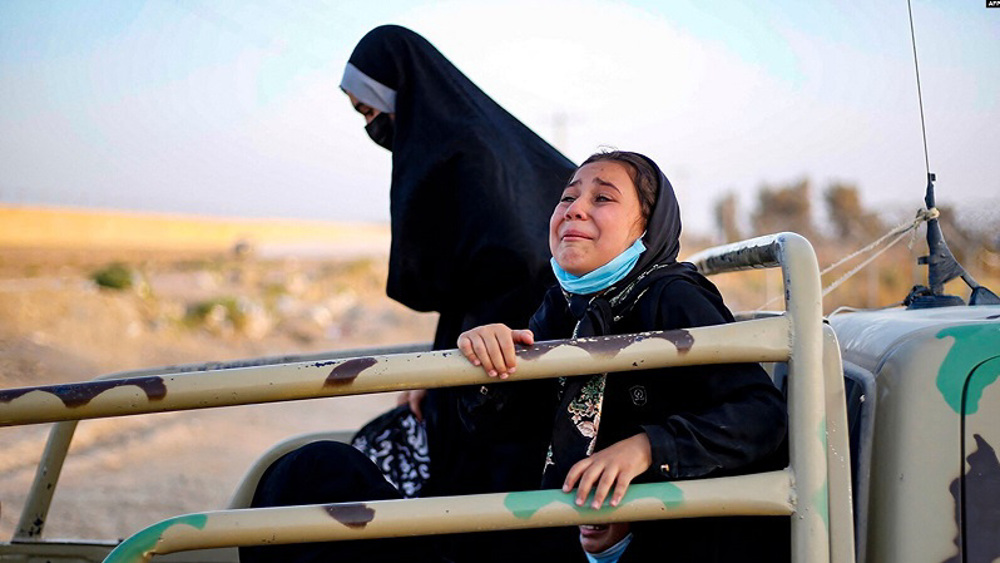
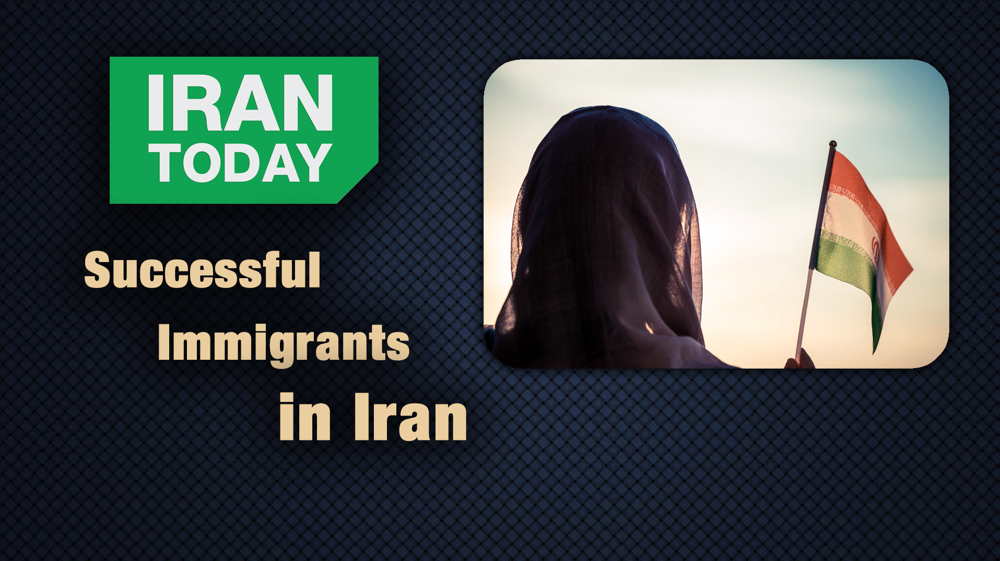
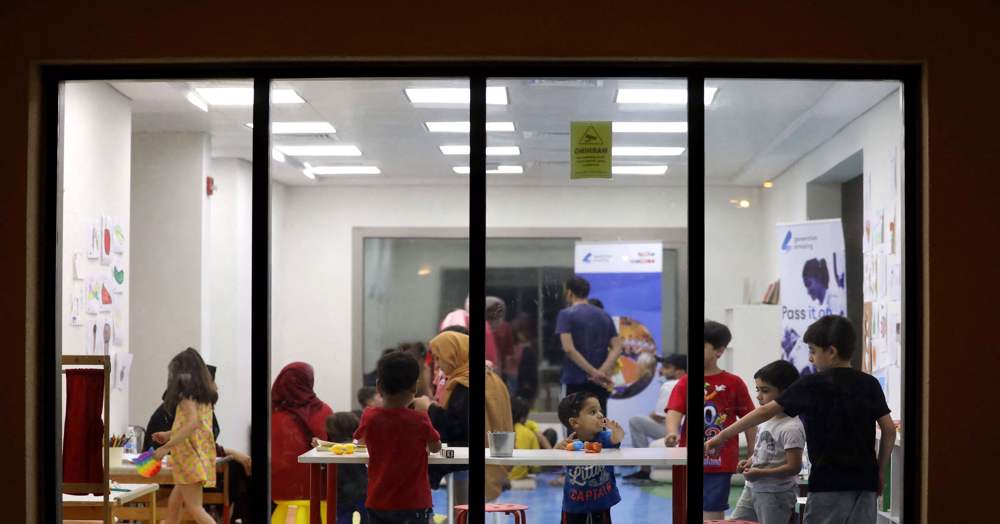
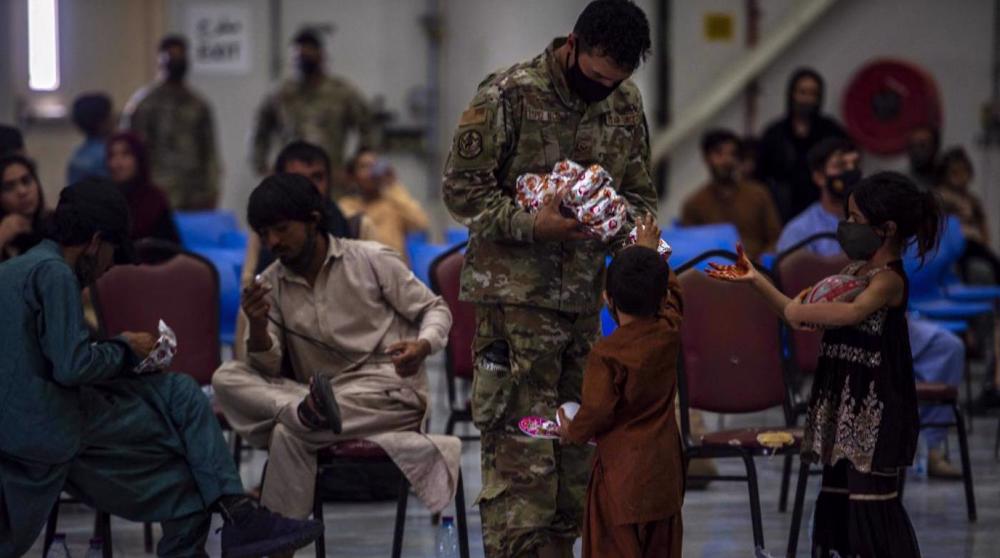
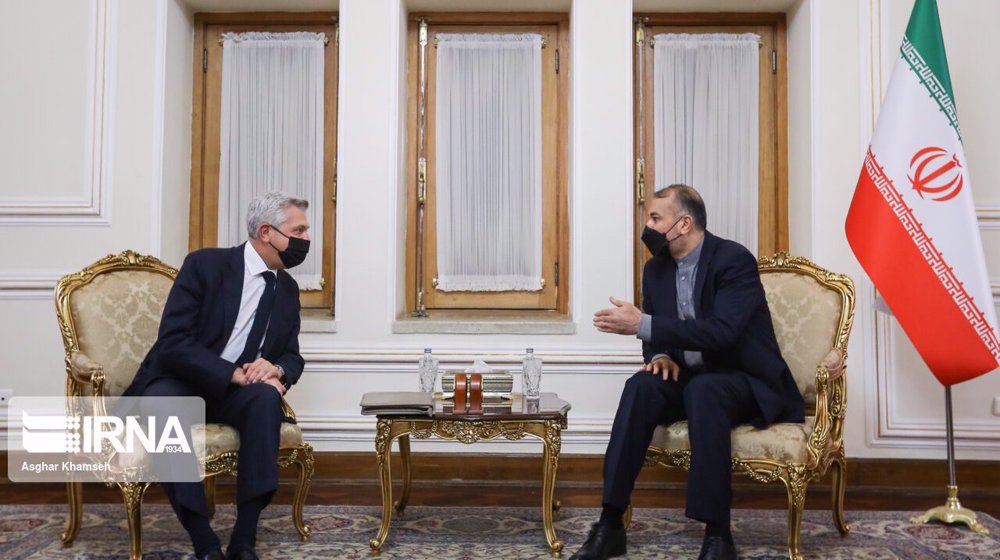
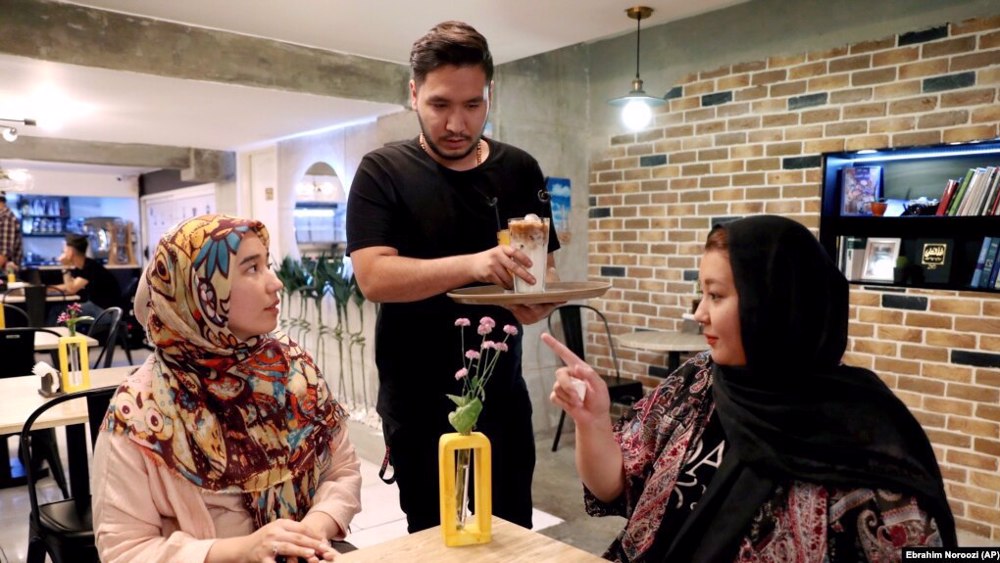
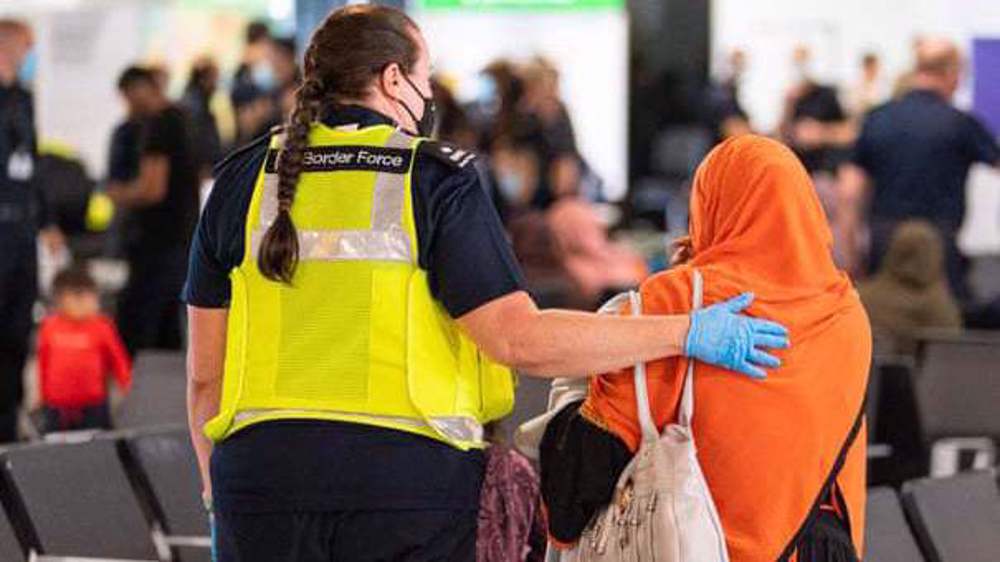
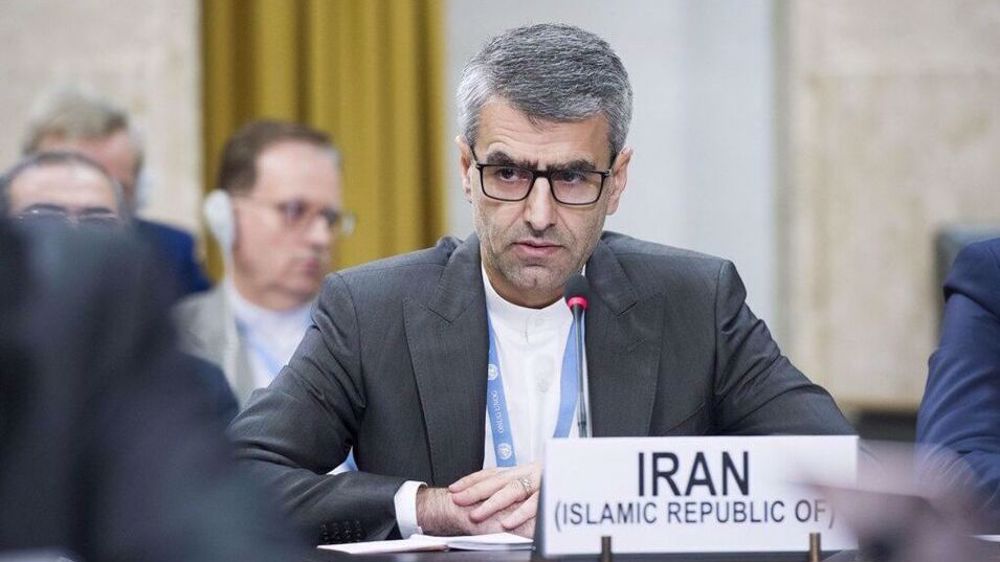
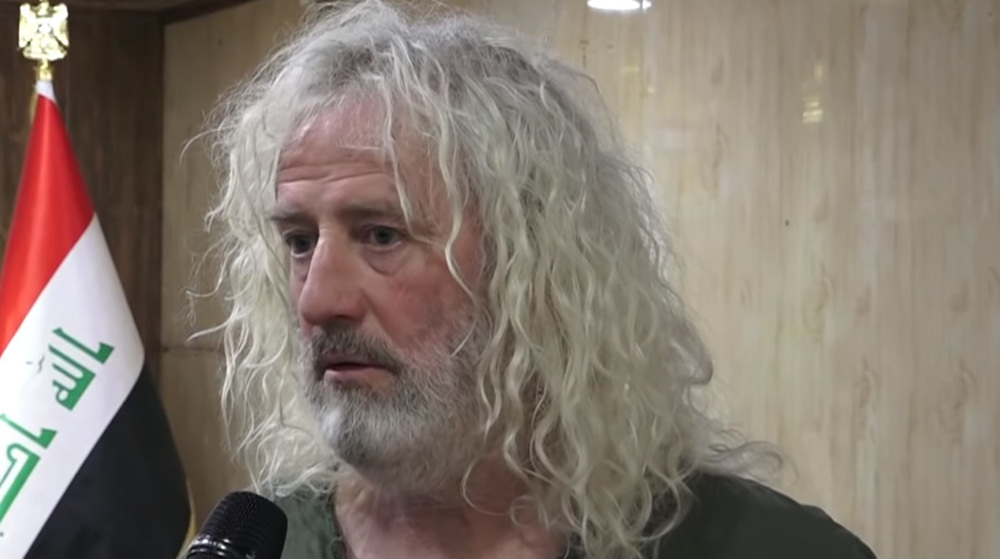
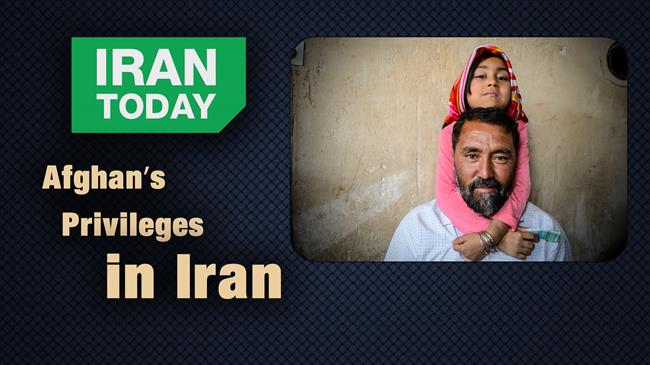
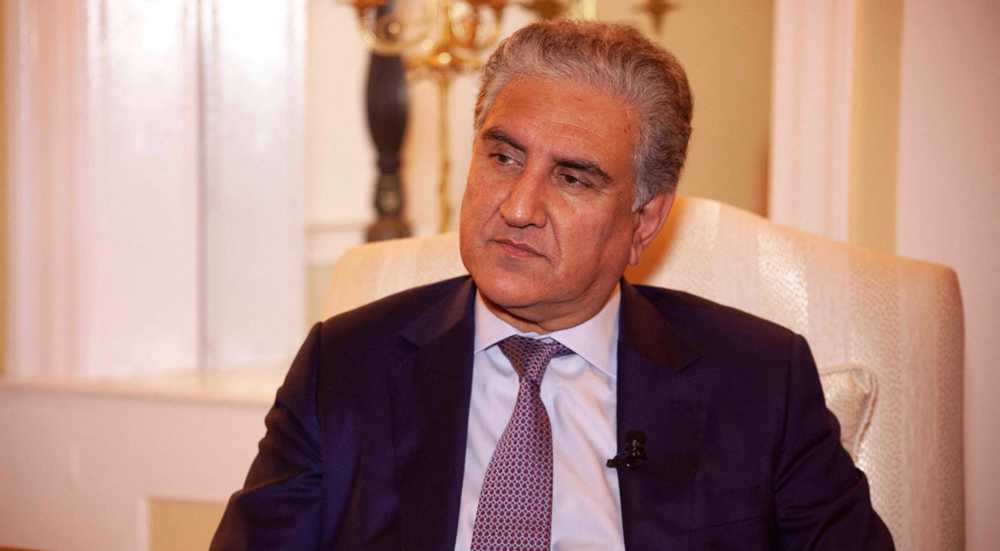
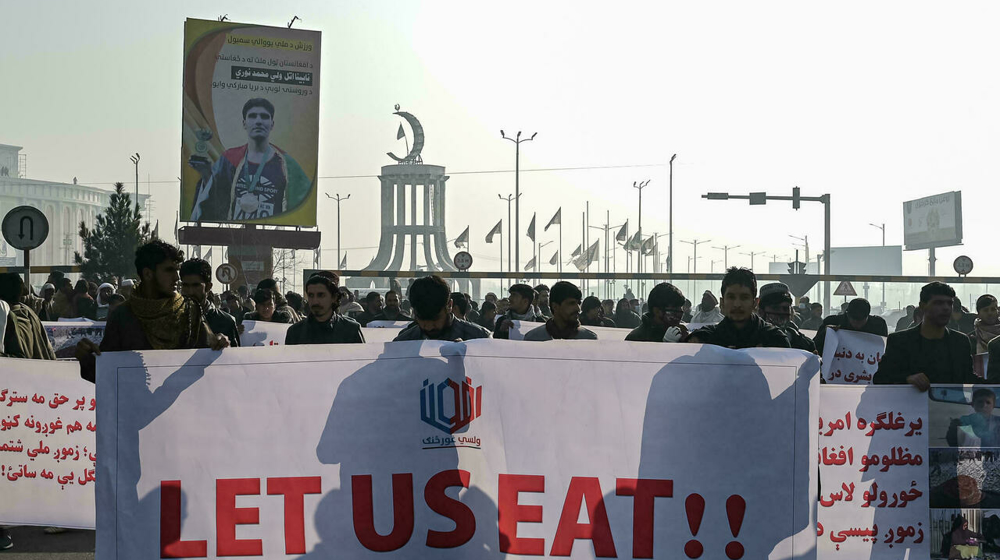
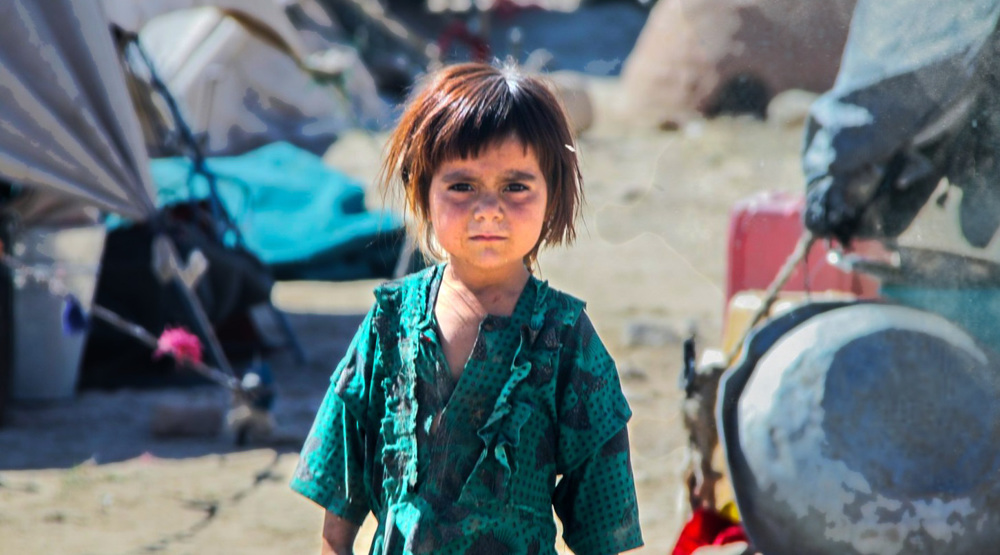
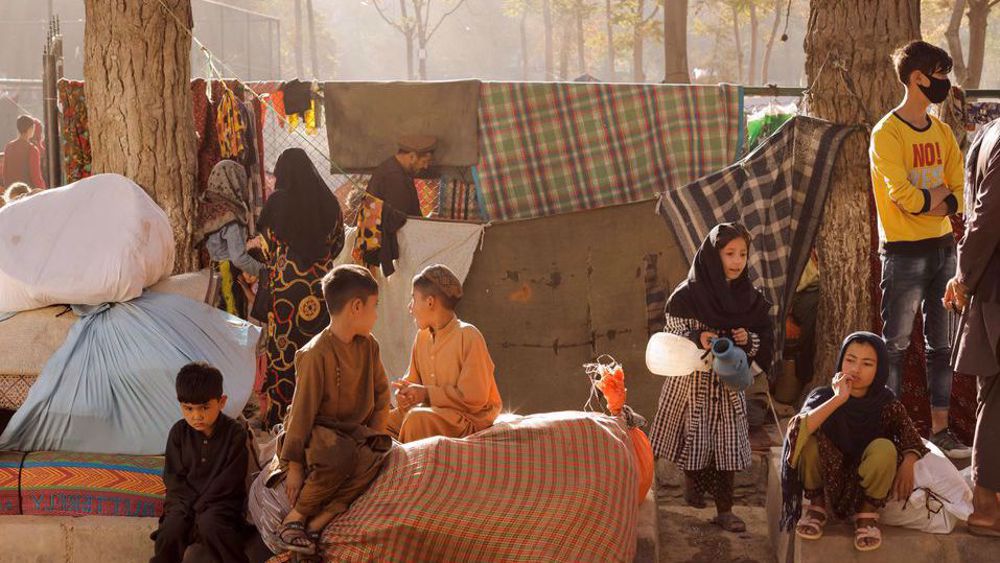

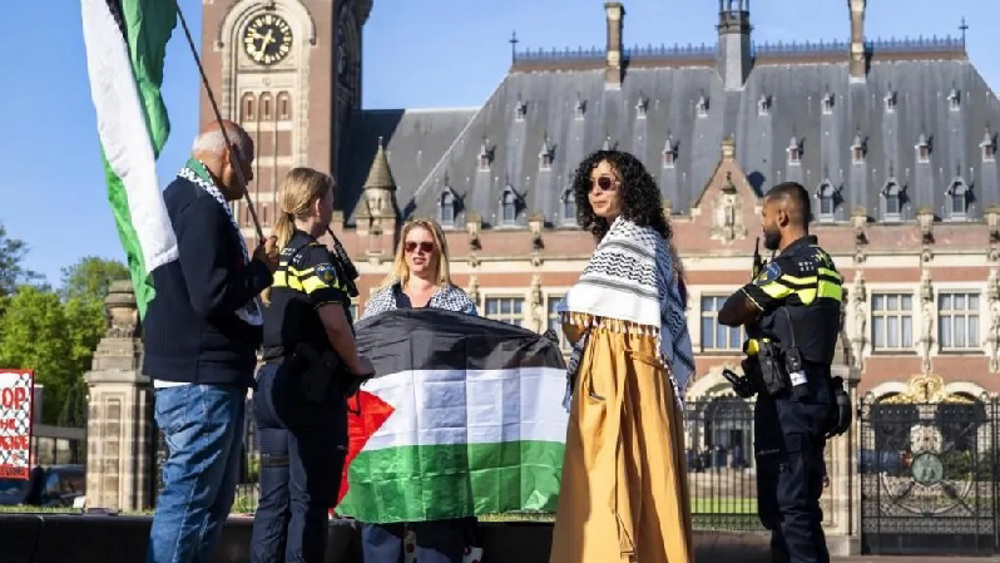
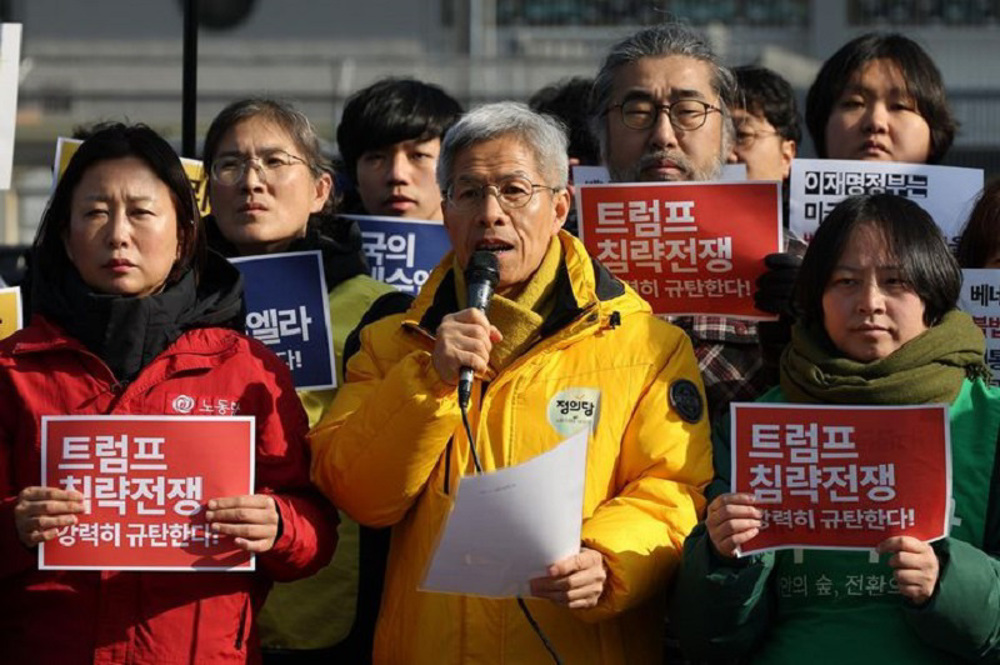



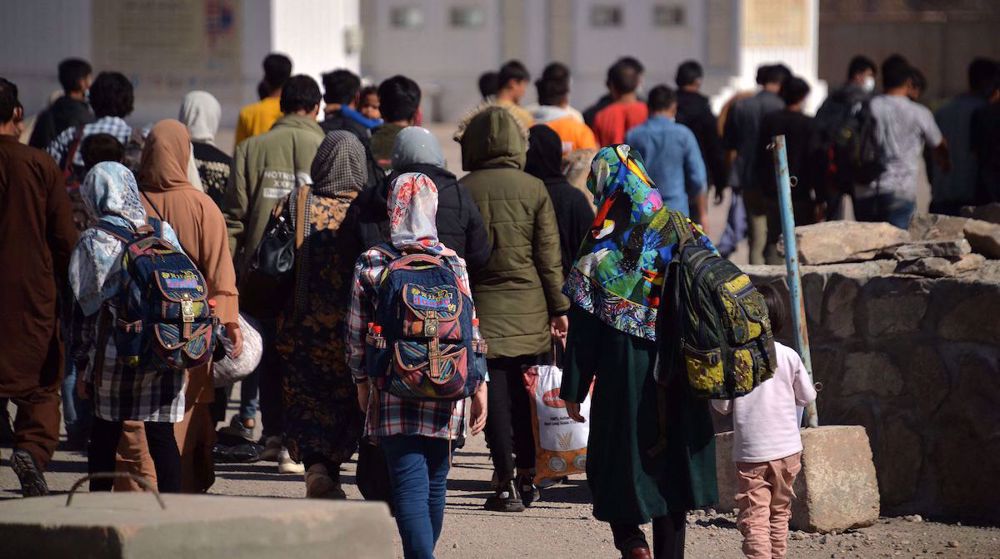
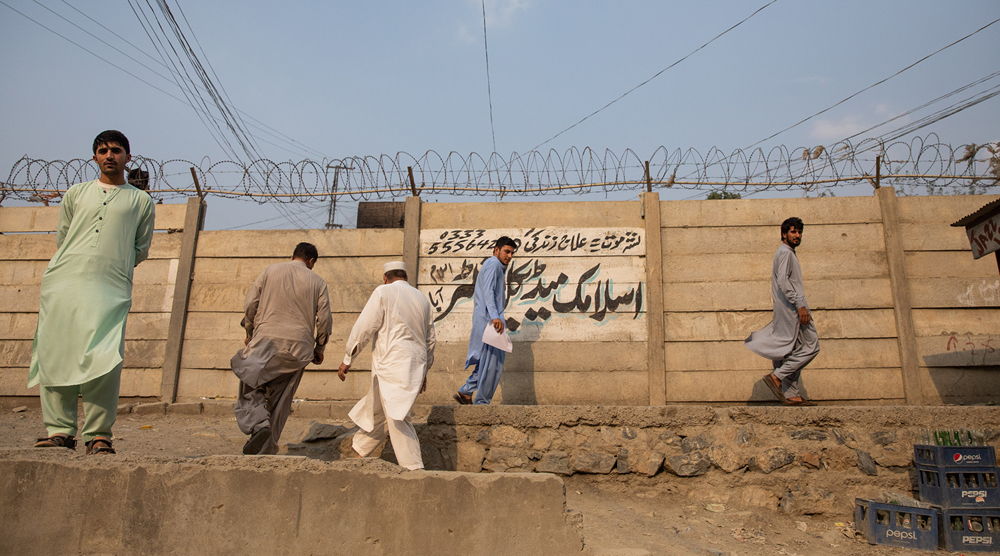
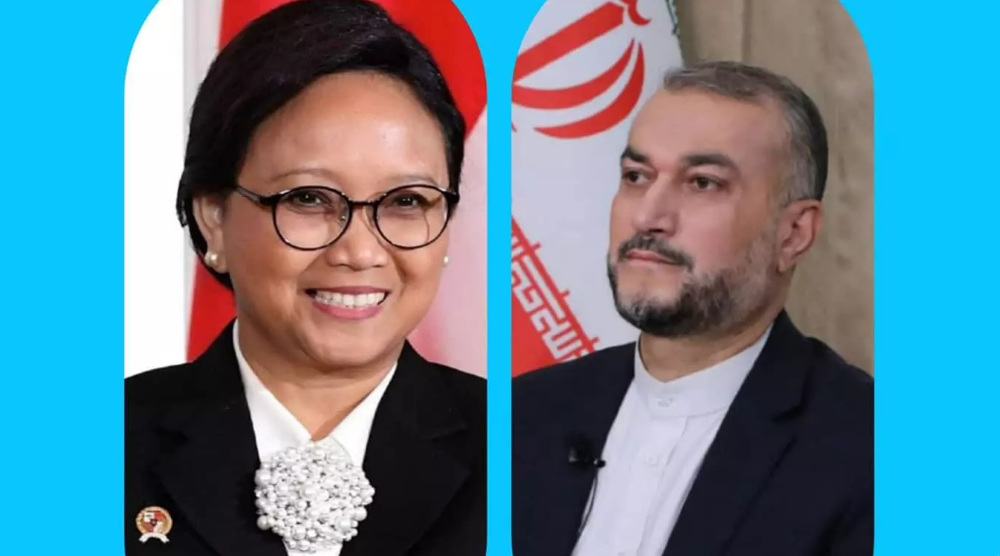
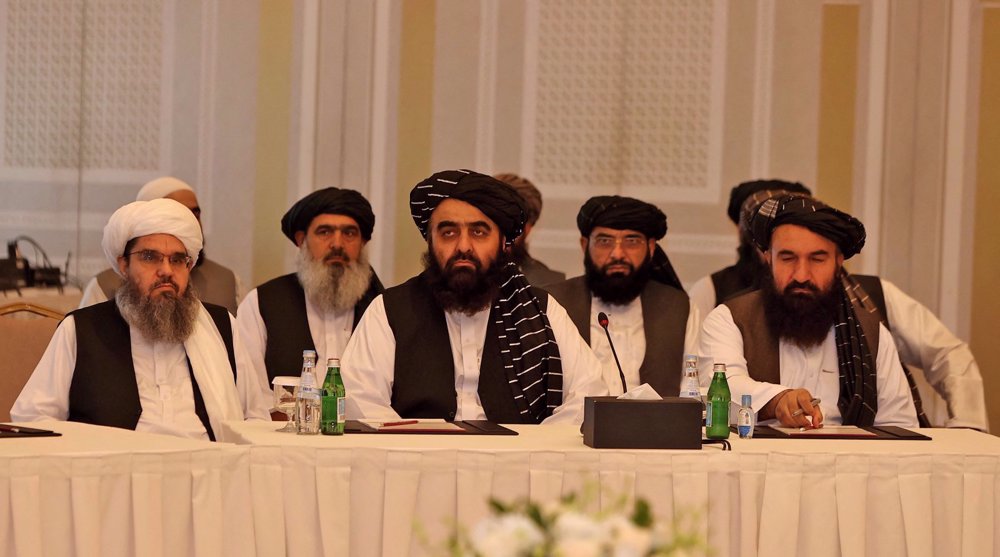
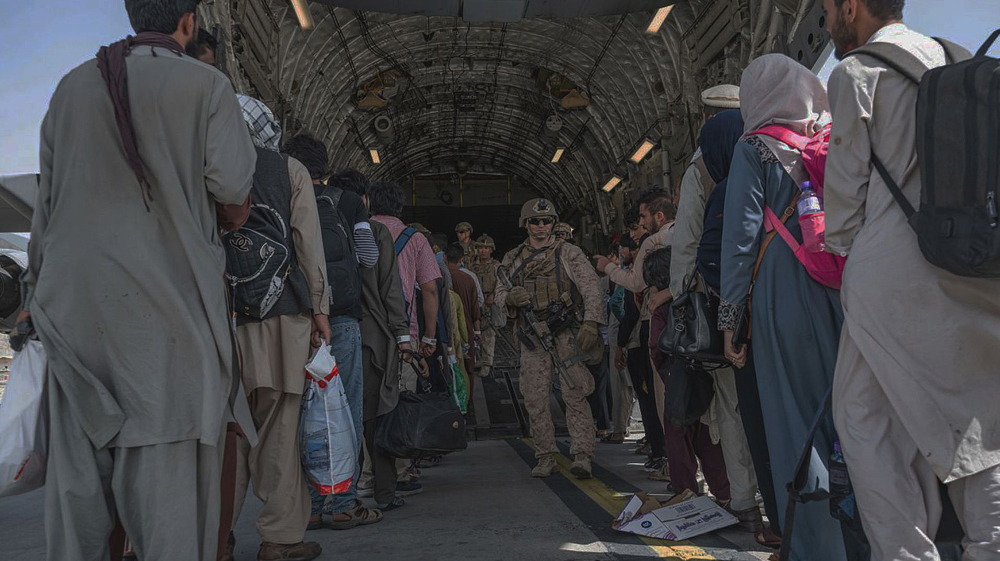
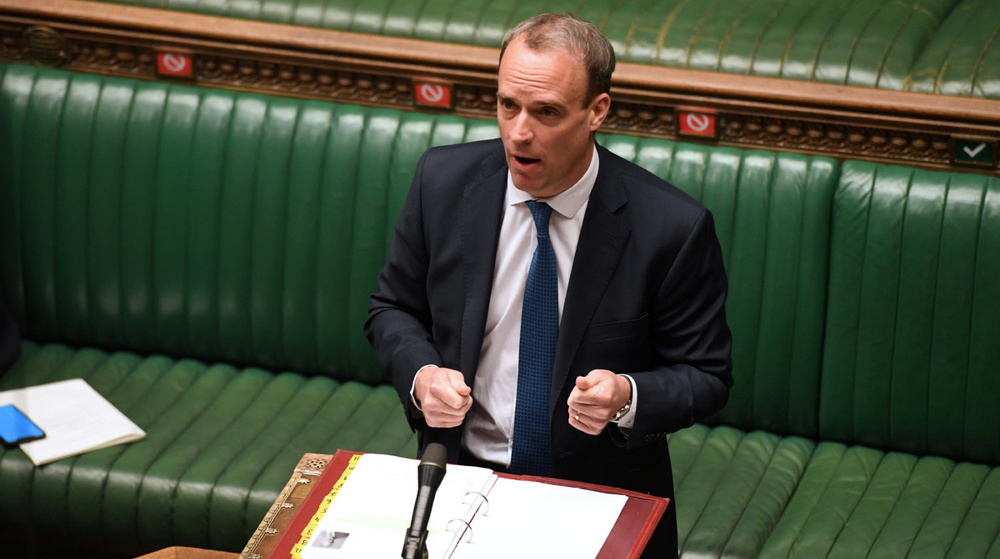
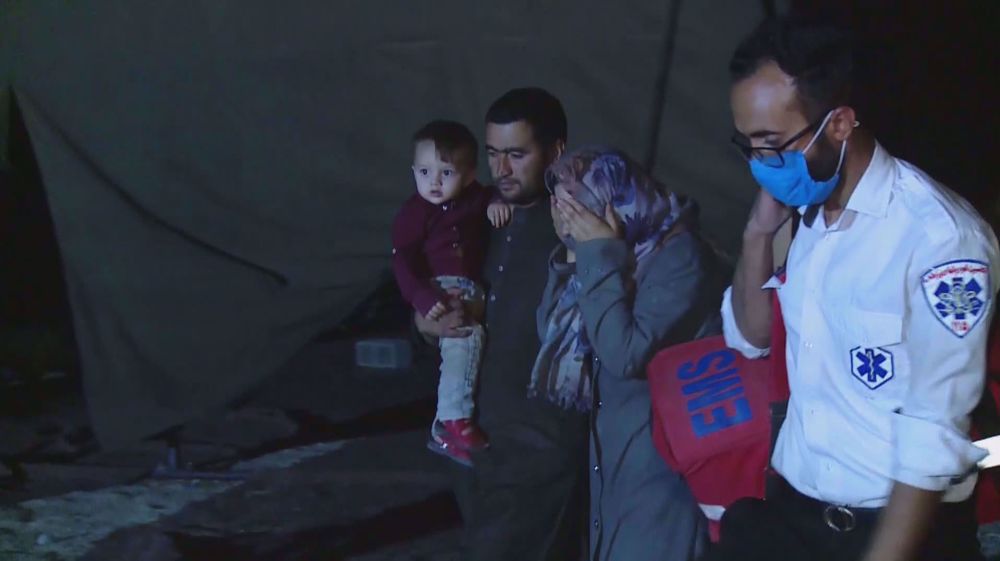

 This makes it easy to access the Press TV website
This makes it easy to access the Press TV website